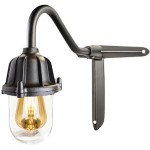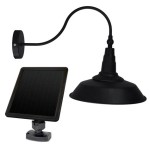Essential Considerations for Choosing Plants for Outdoor Spaces
Creating an inviting and aesthetically pleasing outdoor space requires careful consideration of the plants you choose. Whether you're designing a lush garden, a vibrant patio, or a cozy balcony, selecting the right plants is crucial for ensuring beauty and functionality.
Here are some essential aspects to keep in mind when choosing plants for outdoor areas:
1. Climate and Hardiness Zone
The climate and hardiness zone of your area play a significant role in determining which plants will thrive outdoors. Research the hardiness zone for your region and choose plants that are known to perform well in that zone. This will ensure the plants can withstand temperature extremes and other environmental conditions.
2. Light Requirements
Different plants have different light requirements. Consider the amount of sunlight your outdoor space receives and choose plants accordingly. For sunny areas, sun-loving plants such as roses, daylilies, and sunflowers are excellent choices. For shady areas, shade-tolerant plants like hostas, ferns, and impatiens will thrive.
3. Soil Conditions
The soil in your outdoor space can vary in composition and fertility. Determine the pH level and drainage capabilities of your soil before selecting plants. Some plants, such as acid-loving azaleas, prefer acidic soil, while others, like lavender, thrive in well-drained, alkaline soil.
4. Size and Shape
Consider the size and shape of the plants in relation to the space available. Large trees may provide shade but can also dominate small areas. Shrubs and perennials offer a variety of heights and shapes, allowing for flexibility in design. Climbers and trailing plants can add vertical interest and soften architectural features.
5. Water Needs
The water needs of plants vary widely. Choose plants that are adapted to the rainfall patterns in your area. Drought-tolerant plants, such as succulents and rosemary, are ideal for dry climates, while moisture-loving plants like hydrangeas and ferns require consistent watering.
6. Maintenance Requirements
Different plants have different maintenance requirements. Consider your time and resources when choosing plants. Some plants, such as low-maintenance succulents, require minimal attention, while others, like roses, may require regular pruning and care.
7. Companion Plants
Consider the potential companion plants for your chosen species. Some plants have symbiotic relationships, while others may compete for resources. For example, nitrogen-fixing plants like clover can benefit nearby plants by making nitrogen available in the soil. Companion planting can improve overall growth and health.
Choosing the right plants for outdoor spaces is essential for creating a beautiful and thriving environment. By considering these essential aspects, you can select plants that will flourish in your specific conditions and enhance the aesthetic and functional value of your outdoor space.

10 Best Outdoor Plants Patch

Canary Island Date Palm Phoenix Canariensis Patch

10 Best Outdoor Plants Patch

Indoor Outdoor Plants 9 Garden That Also Thrive As House The Middle Sized Gardening Blog

Outdoor Plants In Pictures With Names For Entrance Balcony Low Maintenance

10 Best Outdoor Plants Patch

15 Positive Energy Plants That Will Boost Your Mental Health In 2024

15 Best Balcony Plants Apartment Plant Ideas

13 Tropical Garden Plants For Your Outdoor Oasis Proven Winners

10 Best Outdoor Plants Patch







